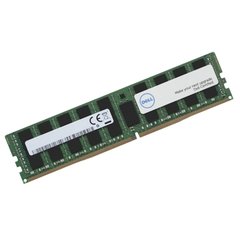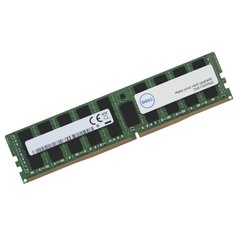Dell compatible 16 GB PC4-21300 DDR4 288-pin-2666MHz ECC UDIMM - VDFYD

Capacity: 16 GB Memory speed: 2666 MHz Typ: UDIMM Type: DDR4 288-pin Rank: 2Rx8 Error Correction Code (ECC): Yes Latency: CL19
Interested in purchasing more units? Request an individual B2B offer for these products.
This is not an original part, but a product with identical parameters, technologies supported only in specific systems, quality and compatibility tested by a proven manufacturer specializing in alternative components. If you are interested in the original part, please do not hesitate to contact us.
| Product code | 210.165656 |
|---|---|
| Part number | VDFYD |
| EAN | 5706998985699 |
| Manufacturer | Dell |
| Availability |
In stock 1 pc
Stock allocation and delivery options
Rožnov In stock
Delivery to selected address Tuesday 3. 12. at the latest Friday 6. 12. |
| Supplier availability | In stock 6 pc |
| Warranty | 120 months |
| Weight | 0.1 kg |
 Server system integrator & worldwide shipping
Server system integrator & worldwide shipping Personal approach and tailor-made servers
Personal approach and tailor-made servers NBD warranties & cross-shipping
NBD warranties & cross-shipping Private cloud infrastructure
Private cloud infrastructure Pre-sales & After-sales support
Pre-sales & After-sales support
Detailed information
Computer memory
Memories (RAM) are essential for the server to operate and they are often key in terms of its performance. Important parameters are mainly capacity, frequency and response speed, which determine the number of tasks that the server is able to serve.
Guaranteed quality
Server memory can have considerably higher capacity compared to conventional computers as well as ECC technology for automatic bit error correction, thus achieving significantly higher reliability.
Compatibility
When choosing RAM, it is always advisable to verify the “compatible list” of the motherboard for which the RAM is intended. Our sales team will be happy to lend you a helping hand when choosing. In some cases, even officially untested memory may work, but over time there may be errors in writing and reading, exposing servers in particular to unacceptable risk.
UDIMM
2Rx8
Frequency
The frequency given in MHz indicates how many operations the memory module performs in one second. As a rule, the higher the frequency of the computer memory, the faster the memory processes instructions.
In the case of DDR4 memories, we normally encounter frequencies of 2,133 to 4,600 MHz, for the latest DDR5 technology we encounter frequencies of 4,800 to 6,400MHz.
2666 MHz
CL19
ECC
This is a technology that allows you to detect and correct an error. As the capacity of computer memory increases, the risk of an accidental error statistically increases.
DDR4
It is the direct successor of DDR3, which outperforms its predecessors with its speed. The main advantages of DDR4 are higher module density and lower voltage requirements (about 40% more economical compared to DDR3), along with a higher data transfer rate and the highest prevalence within the server world.





